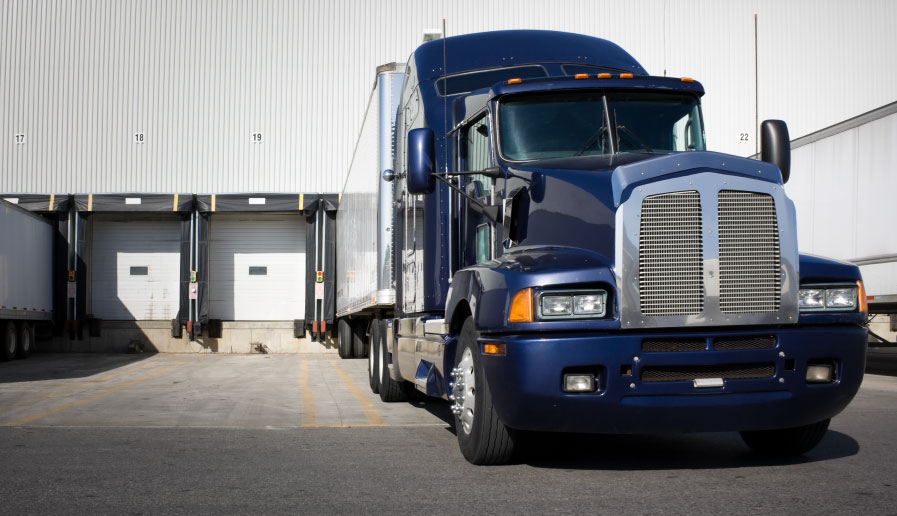
Posted on
Supply chains are complex networks of valuable resources and individuals working seamlessly to produce and distribute products and services. An optimized supply chain is not only successful in its functions, but it is efficient, cost-effective, and responsive to its customers’ needs.
To maximize their operations, businesses often choose to outsource their logistics functions to a Third-Party Logistics (3PL) provider. 3PLs provide essential support in streamlining the distribution of goods so that businesses can focus their internal resources on growth-specific actions such as product development, marketing, and customer engagement. A well-chosen 3PL partner can be the driving force behind a supply chain’s growth within its sector. Continue reading to learn more about 3PLs and how to make sure you choose the right one for your business.
What are 3PLs?
3PLs are external service providers that offer outsourced logistics and supply chain management services to businesses. Their core functions include:
- Warehousing and storage
- Inventory management
- Transportation and distribution
- Order fulfillment
- Freight forwarding
3PLs can be classified into asset-based and non-asset-based providers.
Asset-based 3PLs own physical infrastructure such as warehouses, trucks, and distribution centers, allowing them to directly manage logistics operations.
Non-asset-based 3PLs act as intermediaries, leveraging a network of carriers and warehouses to coordinate logistics without owning physical assets.
| Asset-Based 3PLs | Non-Asset-Based 3PLs |
|---|---|
| Owns physical assets (warehouses, trucks, etc.) | Does not own physical assets; relies on external partners |
| Less flexible; limited to own assets and services | Highly flexible; can source from a broad network of providers |
| More control over quality and timing | Less control over external partners’ operations |
| Higher overhead fees due to asset ownership | Lower overhead fees due to no asset ownership |
| May have limitations on scalability based on assets | Highly scalable; can quickly adjust with external partners |
Download this table to remember the key differences between asset-based and non-asset based 3PLs.
How Do 3PLs Support Supply Chain Operations?
3PLs play a vital role in optimizing supply chain operations by managing all key logistics functions. Effective logistics management involves a range of strategies across warehousing, order fulfillment, transportation, and supply chain visibility.
3PL partners understand the importance of strategically located warehouses and offer a range of services per facility. Facilities are commonly equipped with Warehouse Management Systems (WMS), providing real-time inventory tracking and efficient stock rotation using methods like FIFO (First-In, First-Out). This method of tracking and data analytics further enhances supply chain visibility, allowing for improved demand forecasting and inventory planning alongside comprehensive reporting which highlights trends and cost-saving opportunities. Accurate and efficient order fulfillment is achieved by leveraging multiple distribution centers and offering expedited shipping options.
Mitigating risks is a core function within supply chain operations from start to finish. By ensuring compliance with customs and shipping regulations and minimizing potential transportation disruptions, 3PL partners avoid the inconvenience of delay. Enhanced scalability and flexibility, also gives businesses the capacity to handle seasonal demand spikes and expand into new markets without heavy infrastructure investments. Flexible warehouse space and adaptable workforce solutions support businesses in maintaining efficiency and responsiveness to changing market conditions.
Why Would a Business Want to Utilize a Warehousing 3PL?
Enhancing Efficiency
3PLs have perfected processes such as strategic warehousing, advanced logistics, and origin transloading. When businesses hand over these functions to their trusted 3PL partner, they can concentrate on their core strengths while enhancing scalability. This provides greater flexibility in sourcing products and makes it easier to adjust to shifting market demands.
Reducing Costs
3PLs eliminate the costs needed for a business to maintain its own warehouse, by leveraging their expertise and economies of scale. Partnering with select 3PLs can also provide access to major ports, expediting transportation. By consolidating and optimizing freight movement, operations costs are significantly reduced, lowering expenses associated with storage and transportation.
Mitigating Risks
Successful 3PLs have honed in on safety regulations and prioritize regulatory compliance so that businesses can be sure that their products are stored and distributed with utmost care.
Expansion and Global Reach
Transloading helps with increasing market reach, enabling businesses to expand distribution networks while reducing shipping constraints. A focus on lowering carbon footprint through optimized routes and reduced empty miles also supports sustainability goals. Scaling shipping operations becomes easier with 3PLs ability to handle fluctuating demand, ensuring smooth logistics without the burden of additional infrastructure investments.
In conclusion, 3PL providers, particularly warehousing-focused companies like USA Warehousing, offer immense value by fine-tuning the entire supply chain operational network so that businesses can free up their internal resources. When selecting a 3PL partner, businesses should carefully consider factors such as experience, scalability, technological capabilities, and industry specialization to ensure a seamless logistics solution. Making an informed decision is crucial, as the right 3PL provider can enhance operational efficiency, support business growth, and improve overall supply chain performance. By choosing a trusted and capable 3PL, businesses can position themselves for long-term success in an increasingly competitive market.
